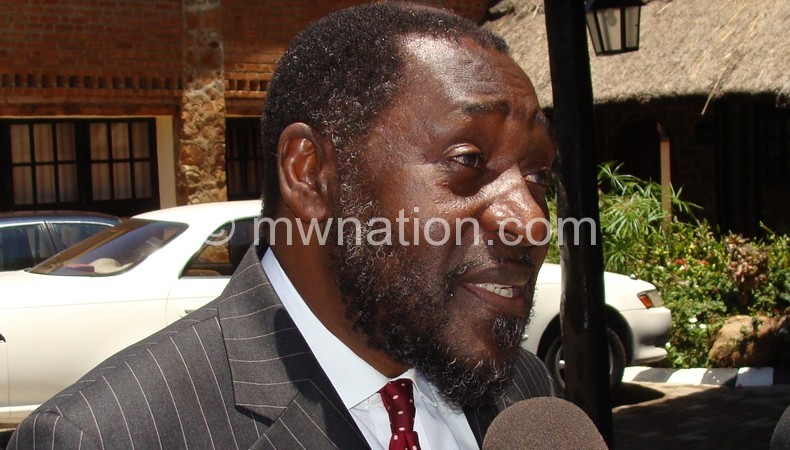Govt freezes recruitment till economy improves

The Malawi labour market faces a bleak future as the civil service, the country’s biggest employer, has not created jobs for the last two years, Nation on Sunday has established.
Government, which currently employs about 140 000 public officers, has not increased the number of employees in the past two years due to “economic reasons.”
Department of Human Resource Management and Development (DHRMD) spokesperson Rudo Mwadiwa said in an interview this week that for two years, the department has not granted authority to recruit new officers, but only sanctioned promotions.
“Any request for [fresh] recruitment made during the period the department was not granting authority to recruit [was] responded to, informing the concerned organisation that their request had not been granted,” she said.
The freeze marginalises thousands of school leavers who are ready to join the country’s workforce, some of whom are seeking greener pastures elsewhere.
According to a 2013 Malawi Labour Force Survey report, about 7 million people are employable in Malawi but only 11 percent are in formal employment.
DHRMD Principal Secretary Sam Madula confirmed the gloomy picture recently when he said, in a separate interview, that government will only resume employment once the country’s economy has improved.
“The wage bill is huge; we cannot continue recruiting. Government has no money for salaries, so until the economy has improved, we can only recruit in essential positions. We will start recruiting when the economy improves,” Madula said.
He said several government departments have been requesting for approvals to recruit people to no avail.
He said among the departments that needed urgent recruitments was the Judiciary which sought approval to recruit 23 judiciary research officers.
On August 15, 2014 the Judiciary filed a request with DHRMD to recruit five principal judiciary research officers, six senior judicial research officers and 12 judicial research officers with the intention to help judges to speed up delivery of judgements.
Judiciary spokesperson Mulenga Mvula said the request was in response to a public outcry over court delays in delivering judgments.
He said the research officers were to assist the country’s 33 judges in researching for court judgments.
“There is only one research officer who serves 33 judges. The recruitment of the 23 officers would have helped to speed up judgements,” he said.
Minister of Information Kondwani Nankhumwa, who confirmed the government’s labour freeze, also said his ministry has failed to convince the Office of the President and Cabinet to recruit a deputy principal secretary and a director of civic education.
“We are trying to fill these vacancies but we are not getting good response,” he said.
This year’s budget pegged government’s wage bill at K163.3 billion, representing a jump of about 24.4 percent from last financial year’s provision.
But Ministry of Finance spokesperson Nations Msowoya said the wage bill might be over K200 billion now following revision of the figures due to salary increase demands by civil servants.
The Public Service Reform Commission, whose report was released on December 18, 2014, also recommended the freezing of new jobs or external hiring.
The commission argued that the freezing of the hiring will allow government to re-deploy some workers that have been affected by the reforms.
Minister of Labour and Manpower Development Henry Mussa said his ministry is not looking up to government to create jobs for Malawians, rather government will enter into partnership with the private sector to spur job creation.
“There are reforms going on in the public service; government is realigning skills with relevant jobs and those that will remain will be redeployed in other sectors of the public service.
“For example, my ministry vacancy rate is at 60 percent but we cannot fill these positions before the reforms are concluded. Some of the people that are in other ministries will be redeployed to fill vacancies that exist in other ministries,” he said.
Mussa said government believes the only way to create jobs for Malawians is through agreements with the private sector to come up with projects that would lead to production of materials for export.
“When we export raw materials, we are exporting jobs. Projects like the Greenbelt Initiative will create jobs,” he said.
Economics commentator Chikavu Nyirenda concurred that the decision to freeze recruitment in public service might have an impact on the youth considering that government is the biggest employer in the economy, but said there is need to review how the country operates.
“People will be affected with the decision to freeze employment in public service. The reforms will help to streamline the civil service which is deemed bloated. It is not the number of employees that matters but the service delivery.
“Creating jobs needs to be a private sector-driven concept. Government needs to create a conducive environment that private sector can invest in and create jobs,” he said.
Nyirenda suggested that government should come up with incentives that encourage local companies to reinvest in their business; hence, creating jobs.





